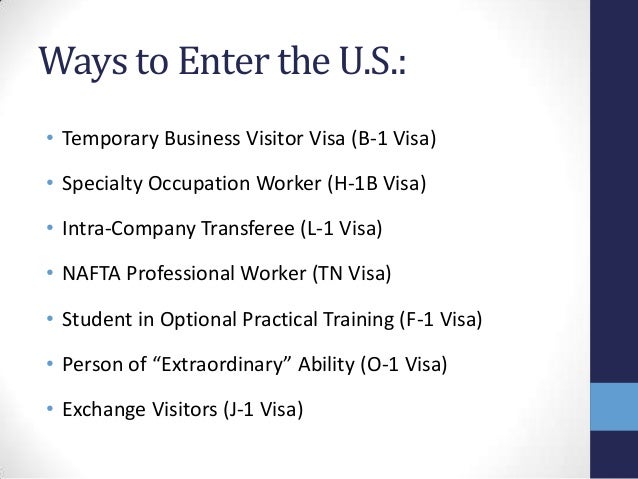
Yes. You can work remotely for a US company as a contractor and negotiate to have them pay you a US-based income. You don’t need a work visa to work remotely as a contractor, only as a full-time employee (referred to as a W2 employee in the US).
Do you need a visa to work remotely abroad?
While working remotely abroad, you always need to keep in mind visa regulations for the country you are staying in. As a general rule, one will need to have a visa when staying in one country for an extended time, usually 90 days.
Can I work remotely in Canada with a work permit?
If you decide to work remotely in Canada, you’ll need two things; a work permit and a temporary resident visa. A work permit will allow you to legally work in Canada. To get a work permit you’ll need a job offer letter and an LMIA, unless your occupation is exempt.
Do you need a work visa to work in the US?
If you need to apply for a residence permit, your US employer must sponsor your visa. Also, the company has to have an official representative in the country where you are applying for the permit. Without a work permit, a foreigner doesn’t have the right to work in another country.
Can I move to Canada with a remote job?
You can move to Canada with a remote job as long as you are working for a Canadian company. If, however, you are working for, let's say, an American company, you could stay in Canada on a temporary resident Visa and work as an independent foreign contractor, however you would need to return to your home country once your Visitor visa expires.

Do you need a work visa to work remotely from another country?
Workers who travel abroad are still subject to taxes from their home office. That is, unless a company already has operations in the intended country of travel and can offer a local contract and work visa.
Do I need work visa for remote job in USA?
If your remote employee is an American citizen, they can occasionally come in to work at your home office. But if your remote employee isn't an American citizen, they can travel to your US-based home office but they can't work out of it unless they have work visa.
Can I work remotely in the US from another country?
Can I Work Remotely From Another Country? It is legal to work from many countries throughout the world even if you aren't a resident of that country. However, you'll need to comply with your chosen country's visa and tax requirements in order to stay there legally.
How can I legally work in the US remotely?
In your case, the only way to become an 'employee' for a remote job based in the U.S. would include: WORK VISA: the company agrees to offer you a work visa opportunity; SPONSORSHIP: The company agrees to sponsor you (helping you get the work visa).
How long can I work remotely from another country?
Though rules vary by location, many countries do not require a visa for stays of less than 90 days.
What is a remote work visa?
The new remote work visa gives you the freedom to come to Dubai, bring your family, work remotely all while remaining employed in your home country. Dubai does not levy income tax on individuals. You also get access to all required services, including telecoms, utilities, and schooling options.
Can I work for a US company and live in Mexico?
Overall, working for a US company and living in Mexico is easy. In fact, you can go to Mexico as a tourist for up to 180-days and work remotely. You don't have to deal with Mexican authorities regarding taxes or banking issues if you receive all work-related payments through a US banking account.
What countries can I work in as a US citizen?
11 easiest countries to get a work visa (for Americans)Australia and New Zealand.The Netherlands.Cambodia.Germany.Ireland.China.Singapore.Ecuador.More items...•
Can you live in Europe and work in the US?
Generally speaking, yes, you can work remotely for the US and live on another side of the world. However, a worker will need to pay attention to tax and residence regulations. If you are working for a US company, but living permanently in a European country, you are theoretically working in that European country.
Can I live in France and work for a US company?
Can you work remotely in France for a US company? Generally speaking, you can work from France for a US company, but there are many factors to pay attention to, such as local tax and residence regulations. Here's what you need to know from a legal point of view: Non-EU citizens will need a residence and work permit.
Can my employer see where I am working from?
Yes, it is possible that your boss (or whomever) is watching you. Using your IP address (a series of numbers with dots), someone can easily trace your location while you're logging in from out of office.
Which island nation has a special visa for remote workers?
Mauritius is another island nation that has just launched their own special visa for remote workers. It’s a stunningly beautiful country, with crystal clear water, thick jungle, and epic mountain peaks to climb.
What proof do you need to work remotely?
Provide proof of self-employment or ability to work remotely (written statement, employment agreement, client contracts, etc)
Why is Georgia offering a nomad visa?
Partly due to the dramatic drop in tourism because of the Coronavirus pandemic, the country of Georgia is one of the latest to offer a digital nomad visa called “ Remotely from Georgia ” to help stimulate their economy. If you’re a remote worker, why not wait out the pandemic and work from a country known for its low-cost of living, colorful cities, and epic mountain landscapes?
How long does a D7 visa last in Portugal?
Portugal. Portugal offers a both a temporary resident visa (D7 passive income visa) and residence permit for independent workers and entrepreneurs for one year, with the ability to renew for up to 5 years. After 5 years you can apply for permanent residency.
Which Caribbean island has a digital nomad visa?
1. Antigua & Barbuda. The Caribbean island nation of Antigua & Barbuda has announced a digital nomad visa called the Nomad Digital Residence (NDR). It’s for remote workers who can show the means to support themselves and any family members joining them.
Where to work remotely in Indonesia?
The beautiful island of Bali, Indonesia has long been a popular location for remote workers to base themselves. And while there are no formal details just yet, Bali has just announced they are looking to implement a brand new digital nomad visa sometime later this year.
Who predicted that remote working would force nations to compete for citizens?
This relatively new phenomenon of countries launching digital nomad visas to attract remote workers was predicted over 20-years ago by Japanese technologist Tsugio Makimoto who wrote that remote working would force nations “to compete for citizens”, and that digital nomad-ism would prompt “declines in materialism and nationalism”.
Can you live overseas and work for a US company?
You can work remotely for the US and live on another side of the world, but you still need to pay attention to local tax and residence regulations.
Can a US citizen work for a US company while living abroad?
As a US citizen, you can work for a US company and live abroad so long as you comply with local visa regulations. An American citizen will continue to pay taxes in the US as usual.
What are some jobs that can be done with a laptop?
It’s grown since the pandemic and is increasing popular for roles including journalism, translating, online or web services, copy-editing or online tutoring, plus a host of other roles that can be done using just a laptop and a decent wifi connection.
Does work outside France count as social security?
If you are declaring work that is done remotely for companies outside France, this still counts in terms of your social security contributions.
Does France have a visa for tech workers?
France does not, as yet, have a similar visa although the country is keen to attract tech workers, but Fiona says people need to be clear on their long-term aims.

What Is True About Working Online in Another country?
- Well, the big truth is this – most countries do not police your accommodation.As long as you have a legal visa to stay in the country, you can rent somewhere to live and then you can work in it. It’s not “legal” to work without the right visa, but it is probably ethically acceptable and while nobody …
What Implications Does This have?
- Well, the biggest issue seems not to be with digital nomads who are, mainly, quite happy to work from anywhere and worry about any consequences later. It’s employers that are having problems with the whole routine. They worry that if you are caught working illegally in Myanmar, for example, that somehow, they will be held legally liable for this. Though how an employer with n…
Do People Get Caught Working Remotely While Illegally in A country?
- Yes, they do but… the only tales we’ve encountered of digital nomads getting arrested for working illegally involve considerable amounts of stupidity on the part of the digital nomads themselves. Here are some tips to avoid getting caught: 1. Don’t brag about working illegallyto your neighbors whether they are local or expatriate. Nobody loves a snitch but snitches are everywhere. Brush o…
Can You Get A Legal Working Visa as A Digital Nomad?
- Many countries offer schemes that approximate a work visa or some kind of residency visa(which may not give you the right to work but should obscure you from the prying eyes of immigration trying to catch tourists who work). Germany, for example, offers a freelancing visa scheme to foreigners as does the Netherlands. Thailand offers both an Elite Visa (expensive but which give…
Will There Be A Remote Work/Digital Nomad Visas?
- In our opinion, the answer to this is a resounding “no”. We explain in detail why not in this article called: Digital Nomad Visas? Why They’re Not Going To Happen And Why Most Nomads Wouldn’t Want Them To In a nutshell – it’s because there’s no actual need for them, there are plenty of ways to immigrate legally, it’s just that they all cost money, no government is going to give you …
Conclusion
- If you want to work remotely in other countries legally, then you need to have the right to work or pay for the right to work. Sadly, this isn’t always cost-effective or even possible. The alternative is to travel and then work remotely illegally, this is a low-risk proposition and the path that most digital nomads follow. Please remember, however, there is no “grey area” either you are working …